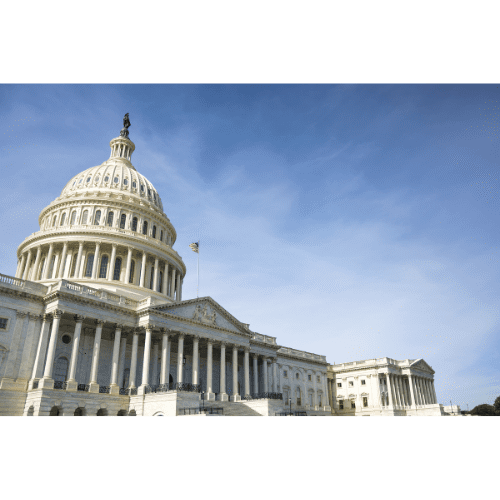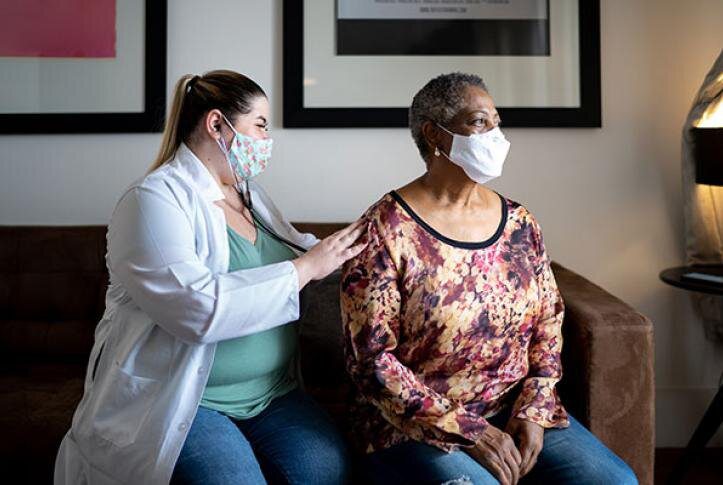-

Standing with Ukraine – A Personal Reflection
·
This week, we reflect on the war Russia brought to Ukraine and what standing with Ukraine means to us.
-

Understanding Stability, Agility, and Distribution of Our Healthcare
·
Healthcare is more than the prevention, treatment, or maintenance of clinical conditions. It also plays a role in how governments establish legitimacy in the eyes of their citizens. Peter Freeman asks the question: how is the current health infrastructure of the United States impacting the perception of our government?
-

#ANFSD: Understanding the Why: Change as Loss
·
In the second installment of her Now For Something Completely Different series on change management, Principal Tina Simpson lays out a fundamental truth about change: it is associated with loss. But who is experiencing the loss, and how is that loss best addressed? As a leader, Tina argues, it is your responsibility to know the answers to those questions.
-

National Patient Recognition Week: Building Trust and Improving the Doctor-Patient Relationship
·
In health care, we are all seeking to make some big, positive changes. This week, as we celebrate National Patient Recognition week, Atrómitos’ Vice President of Operations, Sarah Jagger reminds us why that doesn’t happen without recognizing patients and the role they play in transformation – and how we can tie it all back to the lessons of Groundhog Day.
-

Recognizing Data Privacy Week & Transparency
·
Data Privacy Week is upon us and requires us to take a crucial look at the data privacy infrastructure (or lack thereof) within the United States. Atrómitos Principal Tina Simpson lays out where we are, where we could be, and the responsibility each of us has to better protect all of our data.
-

Marketing 102: Three Ways To Approach Marketing If You Are Not A Marketing Expert
·
Effective marketing is crucial to the success of your business. But what if don’t have a background in marketing? What should you consider and how do you begin?
-

#ANFSD: And Now for Something Completely Different (or so we hope)
·
The new year is traditionally a time for new beginnings, new ways of doing things, and new adventures. But starting the “new” (or, in some cases, stopping the “old”) is not easy. Change is hard, both for us as individuals and for the organizations and companies we work in. So Atrómitos Principal Tina Simpson has set out to help us navigate change management through her new series: And Now for Something Completely Different.
-

The 1, 2, and 3 of Policy Engagement: How To Stay Current With Limited Resources
·
Everything we do is dictated by a policy (or the lack thereof). By extension, that means everyone is impacted by policy. But not everyone engages with the policy process: some of us never learned how, some of us do not have the resources to do so, and some of us think it is not our responsibility. For those of you interested in becoming more involved, we talk through some ways to get started.
-

The Log4J Vulnerability: Explained
·
It has been a frenetic week in cybersecurity following identification of the Log4J defect and its global exploitation, Atrómitos Principal, Tina Simpson, takes some time to break down what happened, why it matters, and what you need to know going forward.
-

HealthTech 2021: Back to Business
·
While attending the GIANT digital technology conference in London, Atrómitos Principal Tina Simpson enjoyed the familiarity of convening once again with colleagues in-person; a “here we are again” feeling. But then the realities of how technology is integrated within and across healthcare organizations became apparent and she realized, “Well, here we are again.”
-

Trickle-Down Economics and Underrepresentation: The (Partial) Design of “Underserved” Communities
·
As the year comes to a close, many of us focus our end-of-year giving on supporting those in need. This week, we consider the reality that “those in need” are such by our design and explore how economic and voting rights policies created the construct of “underserved” communities.
-

Understanding the Assignment: Why “Cause Work Is Hard” Isn’t An Excuse
·
Implementation of ONC and CMS CURES Act Final Rules raises questions and operational headaches, including the potential for increased administrative burden on providers as change is implemented. But that doesn’t mean that these aren’t important and needed changes. This week Atrómitos Principal Tina Simpson evaluates a recent JAMA study evaluating patients’ immediate access to test results on portals and its association with increased messaging with providers.
-

The Intersection of Quality & Value-Based Care
·
Healthcare Quality Week highlights the importance of quality in the healthcare delivery system. Guest Author Lavondia Alexander with Evolve Health Strategists breaks down the basics of why quality is important, how it impacts payment models, and how you can begin improving your quality game.
-

The Monop-sony-and–oly of Healthcare: A Call to Government Action
·
According to an annual report by the AMA, competition within the health insurance market is decreasing. This week we explore what that means, how it impacts care delivery, and what actions are necessary to correct it.
-
CyberSecurity Awareness Month: A Call to Focus on its Impact on Patient Care
·
This week, Tina Simpson is joined by freshman, an information security professional with 25 years’ leadership in cybersecurity, with a particular focus on medtech. In this article, Tina and freshman evaluate a critical cybersecurity capacity and infrastructure gap across health providers in the United States and call for stakeholders to re-evaluate their assessment of the costs of continuing to defer action.
-

How Your Small Business Can Interact with the Community Navigator Program: Lessons from Healthcare
·
The new federally-funded Community Navigator Program (CNP) is a two-year pilot designed to support “underserved small businesses” addressing challenges and hardships resulting from the COVID-19 pandemic. We apply lessons learned from deploying “Hub and Spoke” operations and Community Health Workers in the healthcare field to help you get a leg up on the CNP model.
-

NC Medicaid Tailored Plans: We Gotta Get this Right
·
North Carolina is poised to implement Tailored Plans, a new managed care program, that will serve as an integrated health plan for individuals with significant behavioral health needs and intellectual/developmental disabilities (I/DDs) next July. Reflecting on lessons learned from other states, DHHS has the opportunity to take action NOW to ensure provider, plan, and system readiness.
-

Moving from Health Literacy to Health Communication
·
In honor of International Literacy Day (September 8), we take the opportunity to reflect on how literacy intersects with health outcomes and introduce the importance of health literacy.
-

Mirror, Mirror 2021: An Opportunity For Change
·
Using data from the Commonwealth Fund’s Mirror, Mirror 2021 report, Peter Freeman assesses the impact a country’s investment in social services has on its health outcomes.
-

#NHCW2021: Homage to Community Health Centers
·
This week, we celebrated National Health Center Week and helping to get the message out about the extraordinary work community health centers accomplish within the communities they serve. Here’s what you need to know.
-

Introducing: Insights into Interoperability
·
Getting to “Plays Well with Others” on the Health Records Report Card. Healthcare is a data-driven industry. Delivering the right care to the right patient at the right time and venue depends on having complete, accurate, and timely access to that patient’s health records.
-

Establishing a Data-Driven Organizational Culture Using SMART Goals and KPIs
·
Whether it’s thrust upon us by external forces or internally conceived, change is a necessary part of growth and success for any organization. Here’s what you need to know.
-

-

The Affordable Care Act Lives to Fight Another Day
·
Yesterday, the Supreme Court released its decision in California v. Texas, upholding the Affordable Care Act (ACA) against a challenge by Republican-controlled “Red States” and the Trump Administration.
-

Top Tools of 2021: Community
·
The next top tool of 2021 that we’re talking about today is community. Here’s what you should know.
-

Reflections on the Campaign for Data Interoperability
·
A little over a week ago, the ONC announced the early retirement of its ten-year Interoperability Roadmap. Here’s our thoughts.
-

Top Tools of 2021: Compromise
·
As our Collaboration Our Ideas article mentioned because your business is predicated on relationships, your company needs to collaborate with many people: staff, clients, vendors, and partners. A similar statement could be made about compromising.
-

The “Hospital-at-Home” Model: A Care Delivery Innovation with Traditional Roots
·
It’s National Hospital Week, so we’re taking a closer look at the “Hospital-at-Home” Model — a care delivery innovation with traditional roots. Here’s what you need to know.
-

Top Tools of 2021: Collaboration
·
Next up in our Top Tools of 2021 series: Collaboration. Here’s what you need to know.
-

Public Health is the Future
·
It’s National Public Health Week, so it’s time that we recognize public health for what it is (our future) and invest in it as such.

